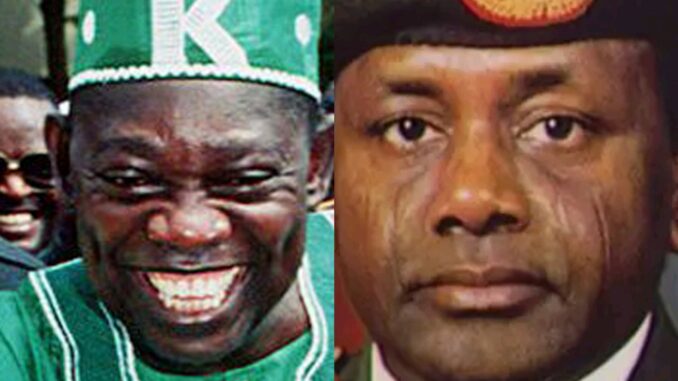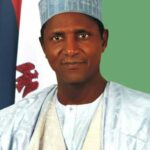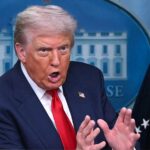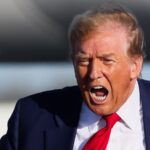
Renowned media mogul, publisher of Ovation International magazine, and political commentator, Chief Dele Momodu, has revisited a defining moment in Nigeria’s political history, recalling a confidential meeting that took place at the residence of the late Chief MKO Abiola shortly after General Sani Abacha seized power in 1993.
Speaking during an interview on Arise News, Momodu shared rare insights into the political atmosphere that followed one of Nigeria’s most controversial power transitions. Reflecting on the period, he described it as a time of uncertainty, fear, and intrigue, emphasizing how closely he had witnessed some of the country’s most consequential political decisions unfold.
“In 1993, a few days after General Sani Abacha took over power I think that would have been November 17th, 1993 there was a meeting a few days after in Chief MKO Abiola’s house, and I thank God for my knowledge of Nigerian history,” Momodu recounted.
The meeting, according to Momodu, took place against the backdrop of Nigeria’s deep political crisis following the annulment of the June 12, 1993 presidential election, widely believed to have been won by Chief Moshood Kashimawo Olawale (MKO) Abiola.
After the annulment by the Ibrahim Babangida regime and the subsequent collapse of the Interim National Government led by Chief Ernest Shonekan, General Sani Abacha staged a military coup and assumed power as Head of State.
Momodu explained that the atmosphere at Abiola’s house was tense yet determined, as many prominent politicians, activists, and loyalists gathered to deliberate on the future of democracy in Nigeria.
“It was a moment that revealed the true character of Nigerian politicians,” he said. “You could see those who stood for principle and those who were simply waiting to align with power.”
He noted that the meeting also exposed the divisions within Nigeria’s political class. Some figures were urging Abiola to exercise restraint and maintain dialogue with the new military regime, while others insisted that he should assert his mandate and challenge the legitimacy of Abacha’s government.
“I saw Nigerian politicians at play,” Momodu remarked, hinting at the mix of ambition, fear, and opportunism that dominated the discussions. “It was one of those moments when you realize that politics in Nigeria has always been about survival first, before ideology or conviction.”
Momodu further described Abiola as a man torn between hope and disillusionment at the time hopeful that democracy could still be restored through dialogue, but increasingly aware of the betrayal and power games unfolding around him.
“Chief Abiola was a visionary and a deeply patriotic man,” Momodu said. “But he was also surrounded by people who had different motives. Some wanted to protect him, others wanted to use his struggle as a bargaining chip with the military.”
The Ovation publisher stated that those early days of Abacha’s rule marked the beginning of Nigeria’s most repressive military dictatorship, during which Abiola was later arrested after declaring himself president in 1994. The regime would go on to be defined by widespread human rights abuses, suppression of free speech, and the silencing of opposition voices.
Momodu’s recollection of the 1993 meeting has reignited public interest in the behind-the-scenes politics of that period, shedding light on how key figures navigated the uncertainty that followed the fall of the Interim Government.
He concluded his remarks by emphasizing the importance of documenting such moments for posterity, saying that Nigeria’s democracy was built on the sacrifices and struggles of men and women who refused to give up in the face of oppression.
“History is not just about dates and events,” Momodu said. “It’s about lessons. What happened in 1993 reminds us that democracy is fragile and that it must be protected by truth, courage, and collective memory.” he said. See, More, Here>>>>
Explore More News By Using The Button Above








Leave a Reply